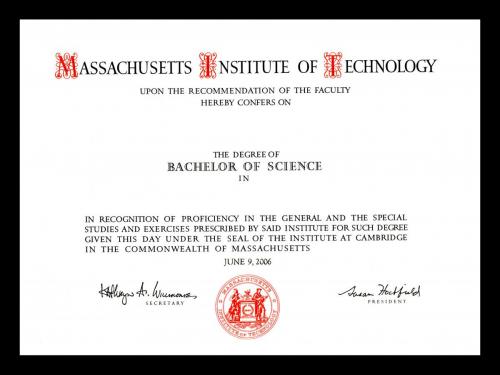
The Music Program offers a broad range of opportunities to experience and engage critically with all areas of music. Introductory classes (21M.0XX) assume no previous knowledge of reading or performing music, but all with the exception of Fundamentals of Music (21M.051) are appropriate for advanced musicians as well. Most non-introductory subjects are arranged into one of three categories: history/culture (21M.2XX), composition/theory (21M.3XX), and performance (21M.4XX). Subjects in music and technology are distributed throughout the curriculum. Additional subjects in special topics/advanced seminars and graduate-credit classes (including music and media) are offered.
Academic credit is given for classroom subjects, advanced solo, and small group performance, and for participation in departmental ensembles including the orchestra, choral groups, wind and jazz ensembles, and world music groups such as Senegalese drumming and Balinese Gamelan. Participation in most of these groups is through auditions held at the beginning of each term. UROPs and independent study in music are also available. The academic program is guided and taught by a permanent staff of professors and lecturers often supplemented by guest artists and visiting faculty.
At MIT it is possible to major (full, joint, or double), minor or concentrate in Music.
Please note: MIT does not offer graduate degrees or (without prior invitation) post-doctoral residencies in Music. Graduate students enrolled in other MIT programs are welcome to take MTA classes and for some subjects graduate credit can be awarded.
If you have questions, please contact the appropriate advisor below:
The Major Advisor is Emily Richmond Pollock, pollock@mit.edu.
The Minor Advisor is Miguel Zenon, mzenon@mit.edu.
The Music Technology Minor Advisor is Eran Egozy egozy@mit.edu.
The Concentration Advisors are Teresa Neff, tneff@mit.edu (Last name: A-H), Jean Rife, jeanrife@mit.edu (Last name: I-P) and Ian Hattwick, hattwick@mit.edu (Last name: Q-Z).


